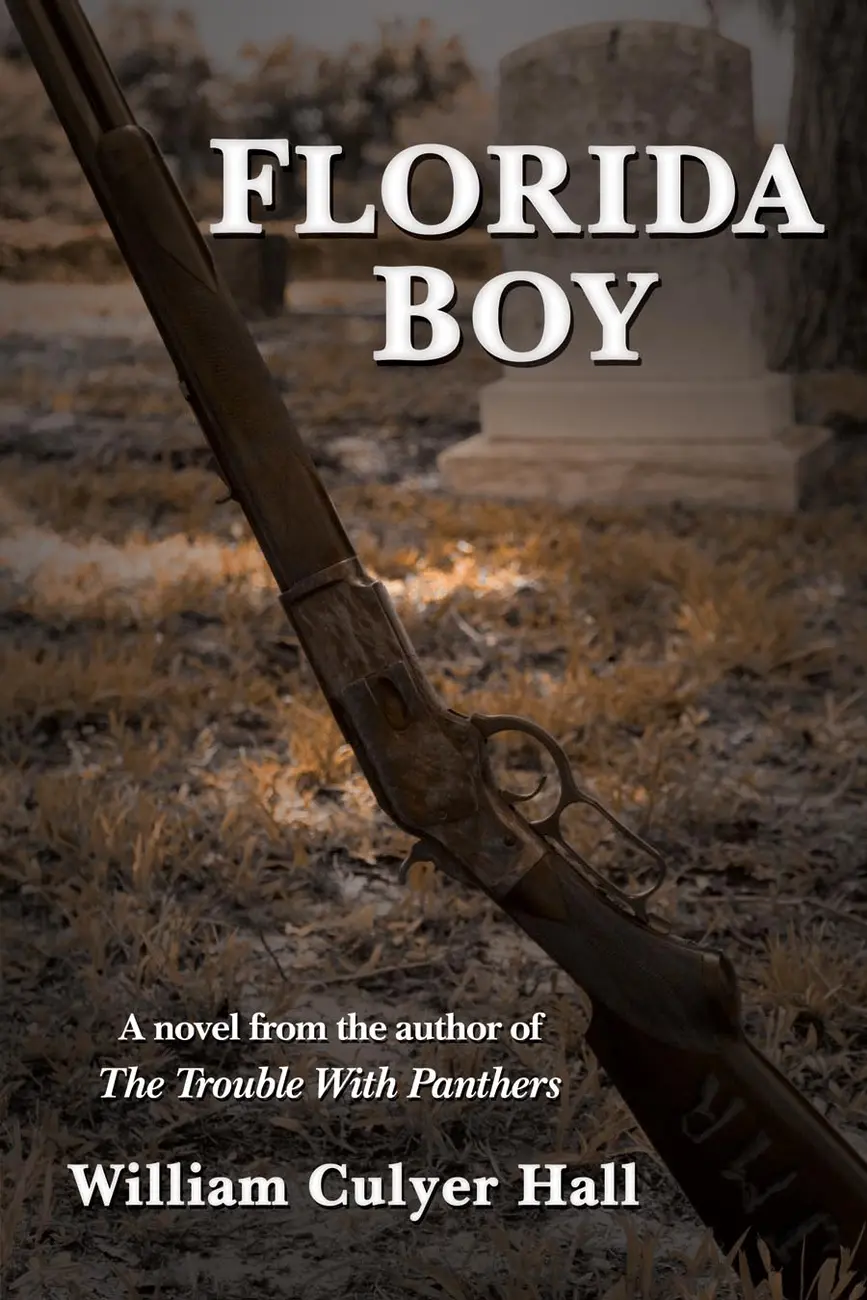Local author William Culyer Hall is known for his dark but engaging stories about rural life in Florida. His new novel “Florida Boy” continues that tradition.
“Florida Boy” is a prequel to Hall’s 2010 novel “The Trouble With Panthers,” winner of the Florida Book Award for Best Popular Fiction and the Patrick D. Smith Award for Best Novel.
Both books focus on the fictional Rawlerson family, pioneers in Florida’s cattle industry.
Hall was inspired and influenced by Brevard County author Patrick D. Smith, author of the beloved Florida pioneer saga “A Land Remembered,” the story of the fictional MacIvey family. Before his death on January 26, 2014, Smith helped Hall with his work.
“The first book that I wrote, Pat was gracious enough to read the manuscript for me,” Hall says. “He told me it wasn’t that good, but he said ‘I see promise.’ I rewrote it, gave it back to him, and he loved it, and wound up getting it published.”
That first book, “September’s Fawn,” is a tragic story set in a north Florida swamp and nearby Cross City.
Hall’s second novel, “The Trouble With Panthers,” introduces the Rawlerson family in the early twenty-first century. After raising cattle on the same land for a century, the family is divided about how to move forward as property values rise. The conflict forces the sale of the property.
“The principal character in that story was 18-year-old Bodie Rawlerson, and of course he didn’t like what had happened,” says Hall. “He wanted to raise cattle like his father and his father before him. It turned out to be a tragedy as has happened with a lot of real families in central Florida.”
The death of elderly family patriarch July Rawlerson sets the stage for the end of an era in “The Trouble With Panthers.” That same character is born in “Florida Boy,” as the family first establishes their homestead in south-central Florida.
In the late nineteenth century, James Arthur Rawlerson works for other cattlemen in Osceola County, but dreams of owning his own property. He and his wife move to the Fort Pierce area to start a family. They are still renting land, but they establish their own herd of cattle.
“The firstborn, John Morgan Rawlerson is the protagonist in this story,” says Hall. “The story begins when he’s about 14. Even though his father will never realize the dream of owning property, John Morgan is determined that they will.”
Since “Florida Boy” is a prequel to “The Trouble With Panthers,” it’s not giving too much away to say that John Morgan Rawlerson is successful in establishing a family homestead, despite some major obstacles.
There are vivid descriptions in “Florida Boy” of what life was like for late nineteenth and early twentieth century pioneers in Florida, and the challenges they faced.
Imagine living in Florida with no air conditioning, no running water except for a pitcher pump, and no electricity. The automobile was a new invention at the time that “Florida Boy” is set.
“Times were tough and the people had to be tough or they wouldn’t make it,” says Hall. “They pretty much had to do everything for themselves. They very rarely would go into Fort Pierce to buy provisions, and only the staples. Everything else they either raised it or hunted it, and they did a lot of fishing.”
There is a lot of death in “Florida Boy,” from disease, accidents, and the actions of other people. Hall shows that pioneer Florida in the early 1900s was every bit as wild as the Wild West.
“I didn’t want my protagonist to come across as being a bad guy, but there were situations where he had to do things he didn’t want to do,” says Hall.
With the birth of July Rawlerson near the end of one novel and his death in another, the topic of Hall’s next book seems clear.
“There are plenty of historic events that will take place from the end of ‘Florida Boy’ to ‘The Trouble With Panthers’ where I could write a good story,” says Hall. “July lived a long life. He was almost 94 when he died, so there’s a lot of writing there.”

